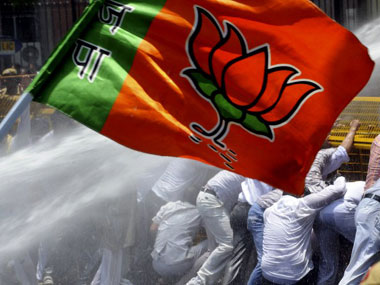Once again, the BJP’s go-it-alone strategy has worked in elections. The Narendra Modi-Amit Shah combination is ensuring that the BJP always going into polls as the big dada, with the allies being mostly small fry. And the strategy has paid off in spades. J&K and Jharkhand are cases in point. However, this is not the case only with the BJP. Other parties too are trying to establish their spaces by fighting alone. We saw this in Maharashtra and Haryana recently, where the BJP abandoned its old allies to flex its own muscles. Logically, this should have spurred rivals to tie up and win the game as the BJP was allied only to very small parties, but this did not happen. After the BJP and Shiv Sena decided to part ways before the Maharashtra assembly elections (only to come together later), the Congress and NCP, which might conceivably have done better by staying together, also did a quick talaq. Both parties were keen to establish their own standing with the electorate before tying up post-polls. [caption id=“attachment_1764511” align=“alignleft” width=“380”]  AFP[/caption] The same thing happened in Haryana, with the BJP deciding to test its standalone strength after dumping the Haryana Janhit Congress of Kuldeep Bishnoi. We saw this again in Jharkhand and Jammu & Kashmir, where the BJP, the Congress and the JMM decided to do their own thing. In Jharkhand, the BJP tied up with the smaller AJSU instead of Babulal Marandi’s JVM (P) and scored. The JMM, far from being humbled, came out reasonably strong as the main opposition party. In J&K, given the rise of the BJP’s ambitions, the National Conference (NC) and the Congress should have stayed together to win more seats by combining votes. But they actually chose to separate, and possibly saved themselves from extinction. Why is this happening? Why are parties seeking to break up before an election and then look for allies – if at all they need them – afterwards? There are several reasons for this new trend, which, has to be watched closely. First, long-term alliances tend to retard the growth of both parties because old power equations and seat-sharing deals tend to get rigid. A seat-sharing formula devised several elections ago may be understating the real strength of one party and overstating that of the other. This is what was established in Maharashtra, though the Congress-NCP battle for opposition space is still inconclusive. Second, when parties have to address different constituencies, staying together may diminish their separate appeal to their core audiences. For example, the Congress, by separating from the NC, could appeal to the Jammu Hindu constituency and stem the BJP’s surge. It is quite possible that if the BJP had focused only on Jammu, it may have got a few more seats and decimated the Congress. Even though the NC lost to the PDP, the latter did not make the kind of gains one expected as both NC and PDP were addressing the same Muslim Valley constituency. In Jharkhand, the JMM was able to address its tribal constituency by fighting alone, and so was the BJP by addressing the non-tribal regions – in addition to the tribals. Third, when alliances get calcified, both partners tend to assume that the electorate is the same. But, as Amit Shah showed in Uttar Pradesh in May 2014, the electorate has moved on. This means an old alliance based on the arithmetic of the previous electorate prevents a recalibration of electoral strategy based on new realities. This suggests that the BJP-Akali alliance may soon be tested as the Punjab electorate may not longer be looking for a Sikh-Hindu combo to place its trust with. In the Lok Sabha elections, we saw four AAP MPs to win in the state, and the BJP could try a standalone strategy in the next assembly elections. Fourth, in a first-past-the-post system, a fragmented party system tends to favour the party with the largest single vote base. This is the reason for the BJP’s win in UP, Maharashtra, Haryana and, now, Jharkhand. This was the reason why parties like SP won a clear majority in the assembly with less than 30 percent of the vote in 2012. In a multi-party race, the party with the largest vote share will make disproportionate gains. Hence parties which see themselves in this category will seldom work with large alliance partners. They will either seek smaller, less demanding allies, or go it alone. This is why the Trinamool broke with Congress in West Bengal, why the TRS broke with Congress in Telangana, and the AIADMK decided to go it alone for the Lok Sabha polls in Tamil Nadu. The BJP will tie up only with smaller parties in the next Tamil Nadu assembly elections due in 2016. This trend is unlikely to continue indefinitely, for the main purpose is to realise your real strengths. Right now, most parties are wondering who will vote for them beyond their traditional base, and they can know this only by fighting it alone. Once they know what their real strengths are, they can negotiate better with their allies based on numbers. Or agree to play second fiddle. This is an exploratory phase that cannot last forever. By 2019, most parties would have figured out whether they should hang together or separately.
The BJP and many other parties are increasingly trying to fight it alone in elections in order to rediscover their standalone strengths, or to win on your own. How long with this trend last?
Advertisement
End of Article
Written by R Jagannathan
R Jagannathan is the Editor-in-Chief of Firstpost. see more


)
)
)
)
)
)
)
)
)



